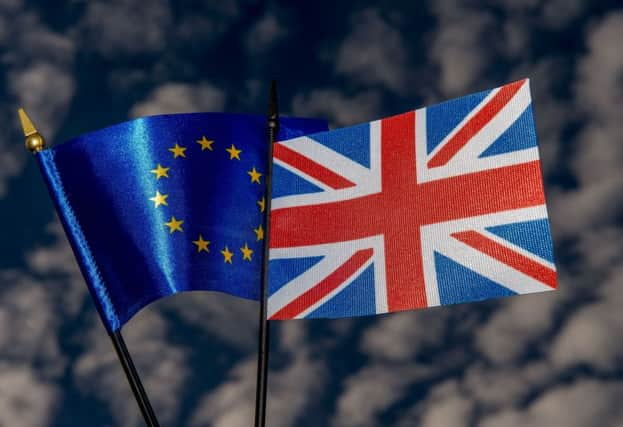Matthew Anderson: Number's up for Brexiteers' risky rhetoric
This article contains affiliate links. We may earn a small commission on items purchased through this article, but that does not affect our editorial judgement.


I RECENTLY debated at an Actuaries business event in Edinburgh. The debate was entitled EU Referendum: Risk and Uncertainty. Those words – risk and uncertainty – sum up the challenge of leaving the European Union and maintaining economic success.
We have had 40 years of peace and prosperity within the EU. To a significant degree, our success is due to a complex union with our European neighbours.
Advertisement
Hide AdAdvertisement
Hide AdDOWNLOAD THE EDINBURGH EVENING NEWS APP ON ITUNES OR GOOGLE PLAY
There is a good reason why institutions such as the Bank of England, Treasury and the Institute for Fiscal Studies exist. They are there to give us numbers we can trust; numbers we can build plans and predictions around to mitigate risk and uncertainty. Those advocating leaving the EU claim they are putting our own country, economy and people first. This I utterly reject. If we really are considering what is best for jobs, our economy and trade, the numbers point only one direction: retaining membership of the EU.
Jobs here in Scotland heavily rely on the EU, with a quarter of a million jobs linked to EU trading. Threatening these jobs by quitting Europe would have a significant impact on Scottish society and our economy, and would have negative ripple effects across other organisations and sectors, as seen in the Institute for Fiscal Studies’ recent report on the likely shrinking of the UK economy due to EU exit.
Freedom of movement across the EU also helps us plug valuable skill-gaps, across sectors such as healthcare, technology and education. Indeed, roughly five per cent of the NHS is staffed by EU workers.
Advertisement
Hide AdAdvertisement
Hide AdThis works both ways – for example, through the Erasmus+ programme young Scots benefit from more than 150 EU-funded projects to boost skills, employability and provide opportunities to study, train and work abroad. And tens of thousands of Scots currently work and live in EU countries.
But EU membership also gives valuable job protections, such as employment rights, maternity and paternity leave and the right not to be discriminated against on the basis of gender, religion, disability, age or sexual orientation or ethnicity.
For the UK economy, the EU single market has meant positive annual UK GDP growth since 1993, except 2007-8 (but, we all know that story), with exports of UK goods to the EU increasing on average by 3.6 per cent each year since the millennium. Significantly, our trade with EU countries has increased 50 per cent due to the union. This growth story translates into GDP net gain of two per cent per annum in the future.
In a direct way, Scotland has also benefitted from EU regional investments, such as ¤477 million for research, SME competitiveness, shift to a low-carbon economy, and environmental protection and resource efficiency. That’s as well as £10m EU funding for Scotland’s broadband rollout and £18m for renewable energy projects in Orkney. These demonstrate tangibly how the EU is contributing investment towards economic development. For Scotland alone, the EU is the top destination for international exports, worth £11.6 billion – and this includes the 500 million bottles of whisky we export throughout the EU each year.
Advertisement
Hide AdAdvertisement
Hide AdAll of these numbers and facts reveal that if we really do have the interests of putting our own country, economy and people first, the numbers stack up in one direction: the risk and uncertainty stacks up on the side of leaving the EU. The evidence is unequivocal. Trust the numbers and vote.
• Matthew Anderson is a member of Scotland Stronger in Europe’s advisory group and a former British Army officer